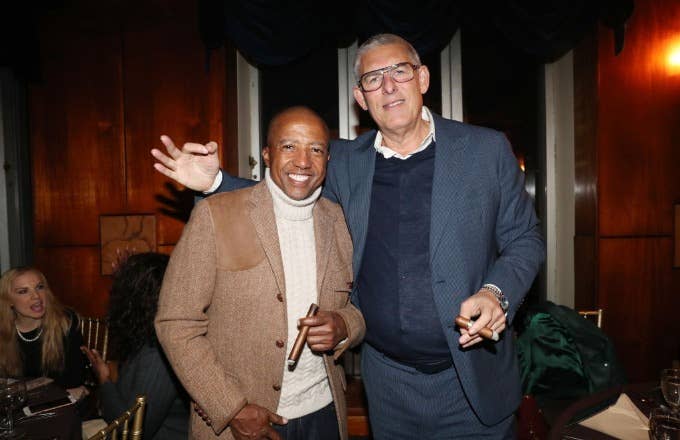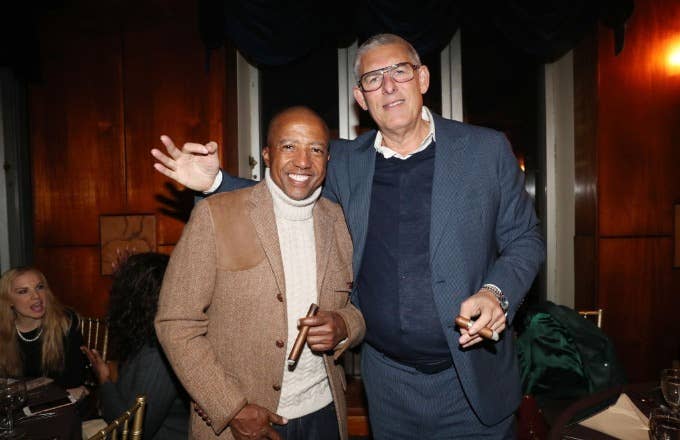
Whenever industry veterans like Lyor Cohen and/or Kevin Liles are able to carve out some time for a televised sit-down, the resulting conversation is a guaranteed study piece for those interested in the behind-the-scenes moves that help drive creative innovation.
That was certainly the case when the 300 Entertainment co-founders (and former Def Jam heads) were interviewed by MSNBC's Ari Melber, bringing about a wide-ranging discussion covering everything from their thoughts on where music will go next to the lessons prospective industry players can learn from Bad Boy's heyday.
"We're the Amoco of this business, we get in our blue overalls and we service our customers," Cohen said around seven minutes into the interview when detailing his assessment of Def Jam's success. "That's the reason why Roc-A-Fella, Murder Inc, and the Ruff Ryders came to us, because we were at their service."
Def Jam, Cohen added, was "invented with black-and-white and shades of gray." With Bad Boy, he added, Diddy and company were doing something different.
"Puffy was changing the conversation, going from black-and-white and shades of gray to high technicolor," he said. "One of the critical mistakes I think they made, and I was thinking of quitting the business because I didn't know how I fit in a technicolor world, especially with the brand Def Jam. So I remember watching The L.O.X.—now this is a real group from uptown, a real important group—the moment they started making them technicolor, I knew that I had to stay in the business and that's when we bumped into DMX."
Elaborating further, Cohen—who once kept a black-and-white photo of DMX in his jacket pocket—broke down the significance of DMX's early aesthetic.
"They were purposely letting people know that all that aspirational stuff I'm sure has a place, all the technicolor stuff has a place, but we're still living in a black-and-white with shades of gray world," he said. "And that's what we represent."
Cohen and Liles also discussed the personal importance of artists lyrically shouting them out by name, the similarities between hip-hop and rock 'n' roll's affinity for the album format, and much more. See the full thing above.

